belief

Shermer and Van Leeuwen discuss: his own personal religious journey (or lack thereof) • “believe,” “make-believe,” and “pretend play” • “taking God seriously” • 4 Principles of Factual Belief • Tanya Luhrmann’s How God Becomes Real: Kindling the Presence of Invisible Others • willing suspension of disbelief • group identity • sacred values • The Puzzle of Religious Rationality • that voice we all hear in our heads • “hearing the voice of God” • hallucinations and psychoses • sleep…

Laith Al-Shawaf shares his experience attending a New Age festival undercover and exploring the beliefs and practices of the attendees.

This article explores the concept of truthiness, introduced by Stephen Colbert, and its implications in today’s discourse, where subjective truths often overshadow objective reality. It discusses the dangers of absolute certainty in beliefs, exemplified by a Young Earth creationist. Through Bayesian reasoning, it suggests adjusting beliefs based on evidence and introduces a model called Bayesian Balance, which helps in evaluating evidence without succumbing to absolute certainty.
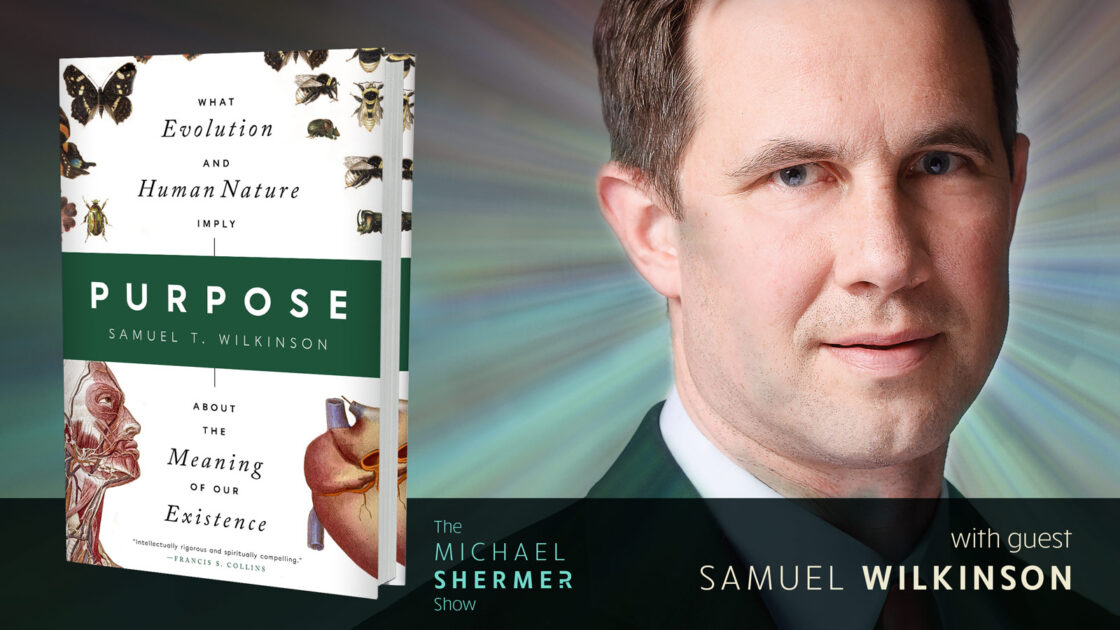
Shermer and Wilkinson discuss: • evolution: random chance or guided process? • selfishness and altruism • aggression and cooperation • inner demons and better angels • love and lust • free will and determinism • the good life and the good society • empirical truths, mythic truths, religious truths, pragmatic truths • Is there a cosmic courthouse where evil will be corrected in the next life? • theodicy and the problem of evil: Why do bad things happen to good…
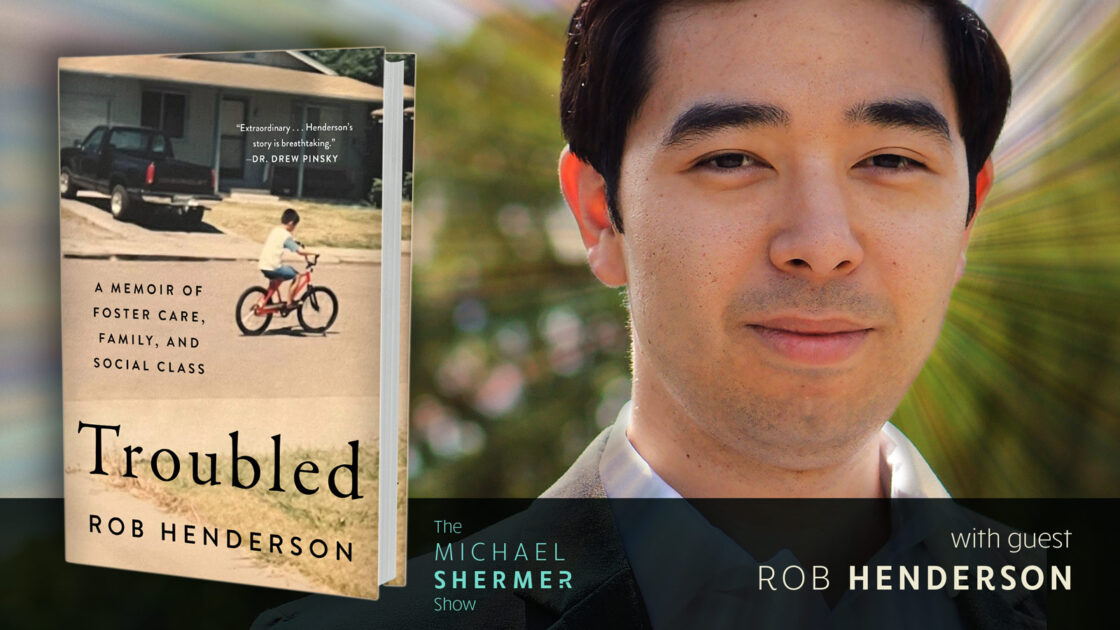
Shermer and Henderson discuss: hindsight bias • genes, environment, luck, contingency • foster care • incarceration rates • marriage, divorce, childhood outcomes • poverty, welfare programs, and social safety nets • the young male syndrome • alcohol, drugs, depression • luxury beliefs of educated elites • wealthy but unstable homes vs. low-income but stable homes • inequality • Henderon’s experience in the military, at Yale and Cambridge • the Warrior-Scholar Project.
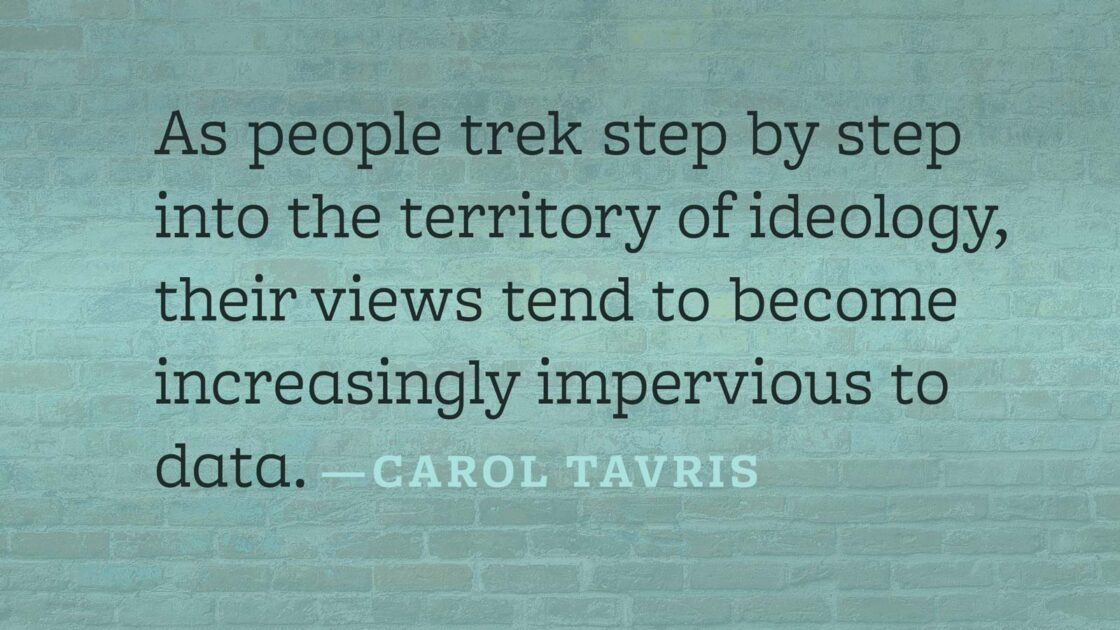
Instead of liberal-conservative bias in education we should think about biases and orthodoxies by topic. Each side values truth and cites facts, but only if they confirm what they already believe. Ideological and Political Bias in Psychology (edited by Frisby, Redding, O’Donohue, & Scott Lilienfeld) details the harm to psychological science, academia, and society from today’s very illiberal ‘woke’ ideology.
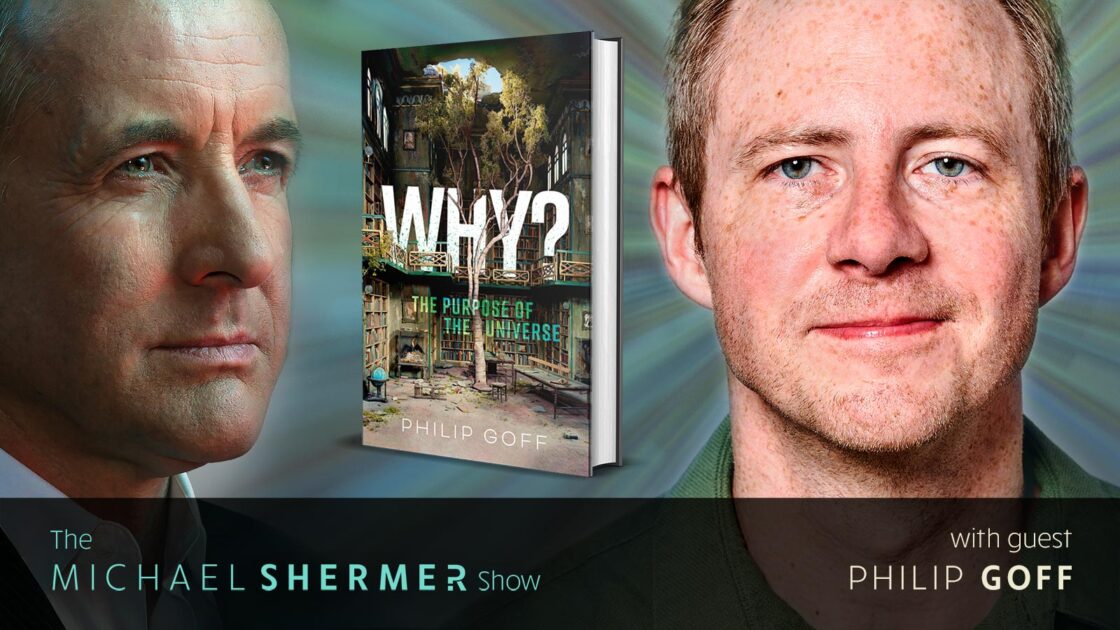
Shermer and Goff discuss: • living in a computer simulation • the universe itself as a conscious mind • cosmic purpose • fine-tuning • free will • consciousness (the ground of all being?) • morality and the Is-Ought Fallacy • What is my purpose in life? • religious vs. secular answers to the purpose question • awe and how to be spiritual but not religious.
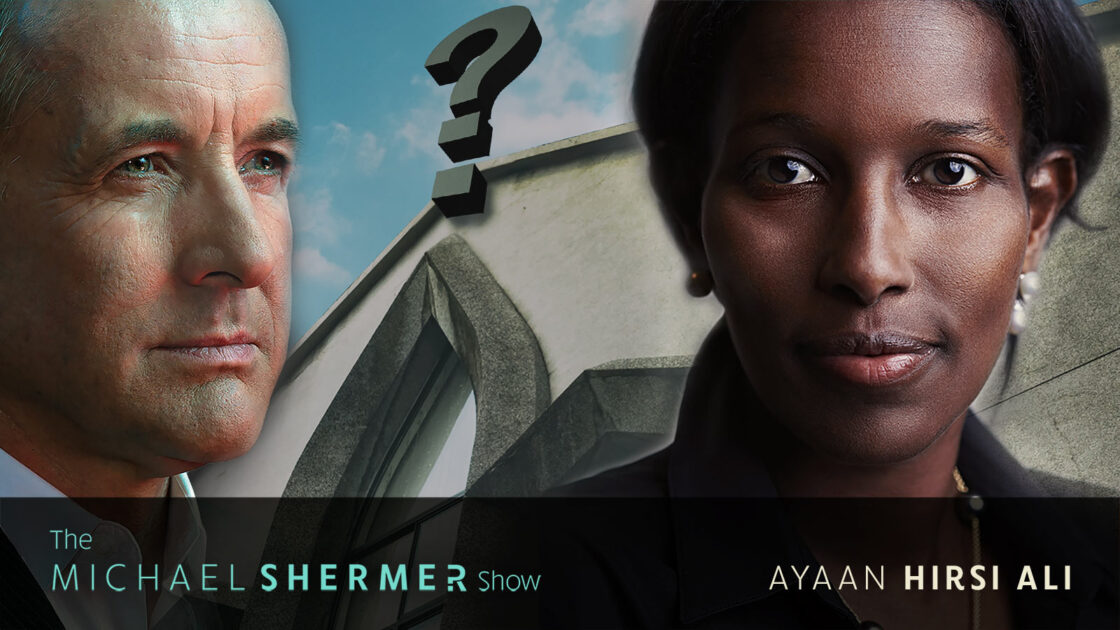
On November 11, 2023, my friend, colleague, and hero Ayaan Hirsi Ali released a statement explaining “Why I am Now a Christian”. What follows is my response, “Why I am Not a Christian,” and why in any case the alternative to theistic morality is not atheism but Enlightenment humanism—a cosmopolitan worldview that places supreme value on human and civil rights, individual autonomy and bodily integrity, free thought and free speech, the rule of law, and science and reason as the…
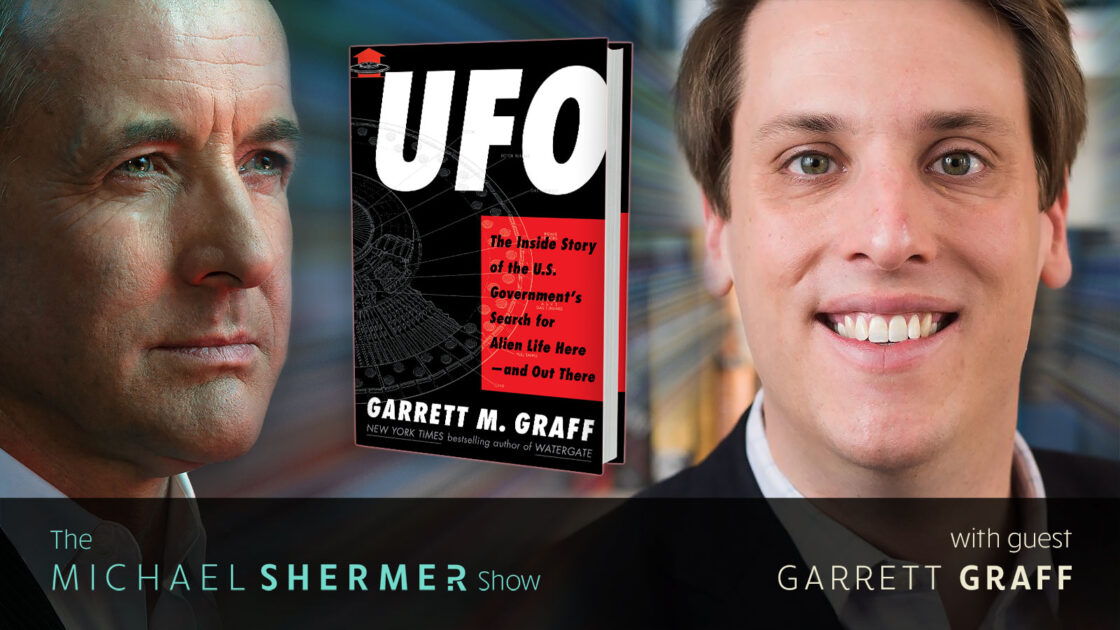
Shermer and Graff discuss: national security • how long government secrets can be kept • cultural context for UFO sightings • why David Grusch’s testimony could be accurate but still not represent alien contact • Kenneth Arnold • Roswell • The Fermi Paradox • why 90-95% of all UFO sightings are explainable • anomalies and how to treat them • Avi Loeb (Galileo Project) • President Clinton’s investigation into UFOs • UFOs as a modern myth or religion.
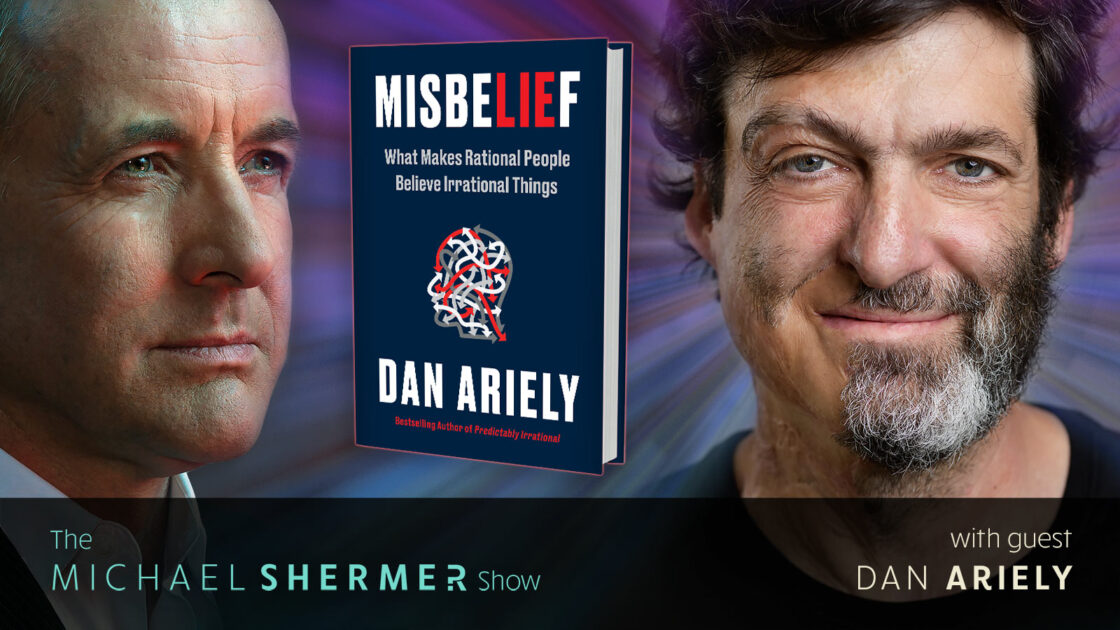
Shermer and Ariely discuss: What is disinformation and what should we do about it? • How do we know what is true and what to believe? • virtue signaling one’s tribe as a misbelief factor • the role of complex stories in misbelief • emotions, personality, temperament, trust, politics, and social aspects of belief and misbelief • the funnel of belief • social proof and the influence of others on our beliefs • a COVID-23 pandemic • social media companies…
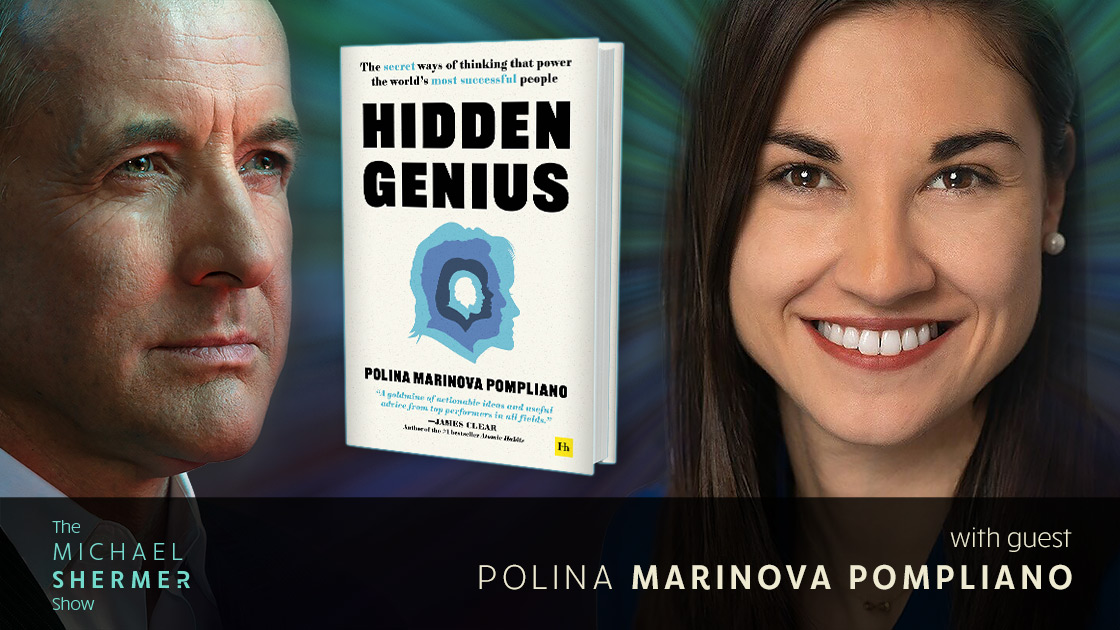
Shermer and Pompliano discuss: personal journey from college to Fortune to The Profile • what distinguishes the truly exceptional from the merely great • What is genius? • hindsight bias • David Goggins: Do something that sucks every single day • stress-testing yourself through regular hardship • victimhood: “Suffering is universal but victimhood is optional” • fear • updating existing beliefs • pursuing meaningful goals • trust = consistency + time.
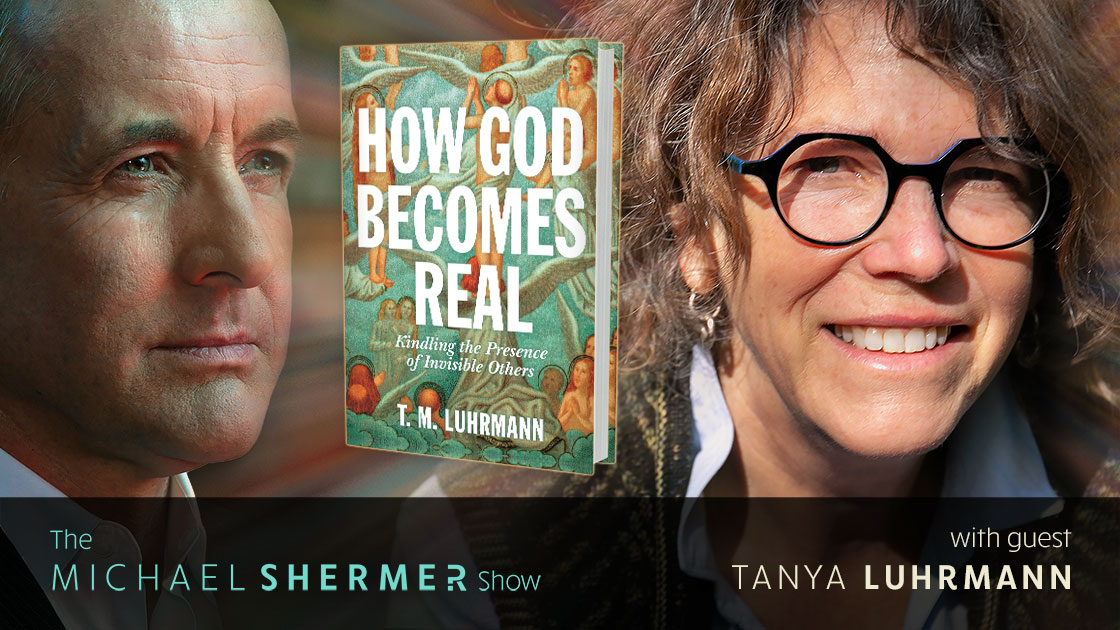
Shermer and Luhrmann discuss: the anthropology of religion • what it means when people say they “hear the voice of God” or are “walking with God” • normal “voices within” vs. hallucinations and psychoses • mystical experiences • anomalous psychological experiences • sleep paralysis and other cognitive anomalies • belief in angels and demons • absorption and religious beliefs • prayer vs. meditation vs. mindfulness • sensed presences • why people believe in God • empirical truths, religious truths, mythic truths…
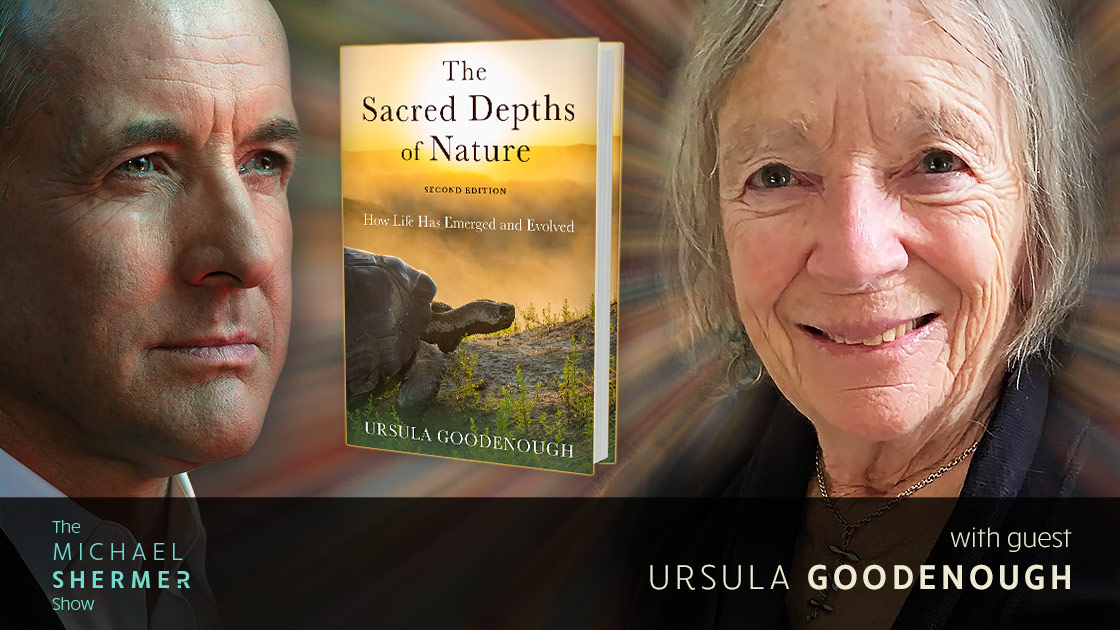
Shermer and Goodenough discuss: origins of her personal beliefs • origins life, RNA, DNA, consciousness, language, morality • myths and religions • what it means to be “religious” • religious naturalism • where the laws of physics came from • why the universe seems so strange • chance and evolution • fine tuning of the cosmos • autocatalysis and emergence • purpose of religion • ethics and morality without religion.
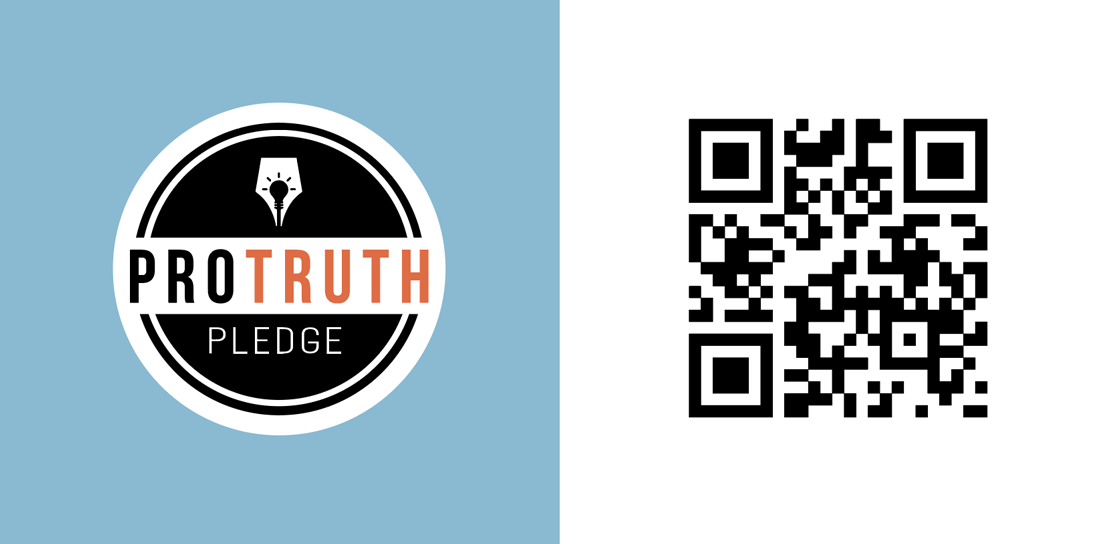
In our “post-truth” world, objective facts are less influential in shaping public opinion than appeals to emotion and personal belief. In the U.S., citizens’ trust in their government is at historically low levels, and the trust gap is difficult to bridge because individuals who practice deceptive behaviors often gain. This type of situation is known as a “tragedy of the commons.” Behavioral scientist Gleb Tsipursky offers the Pro-Truth Pledge (PTP) as one solution to help rebuild trust in and decrease…
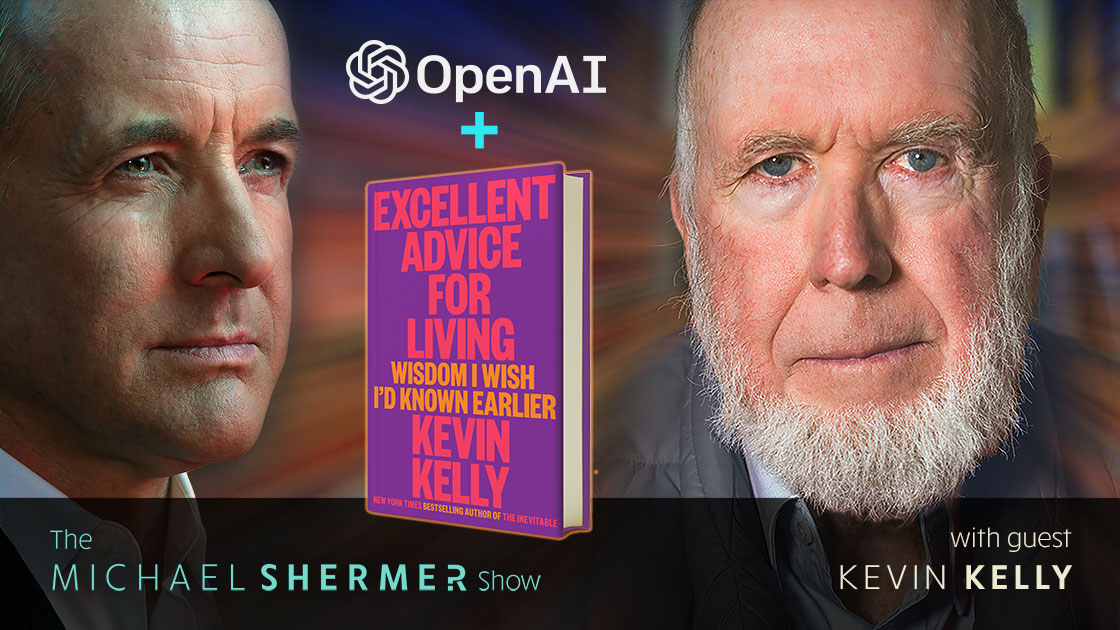
Shermer and Kelly discuss: protopian progress • ChatGPT • artificial intelligence; an existential threat? • evolution • cultural progress • self-driving cars • innovation • social media • putting an end to war • compound interest and the long term effect of small changes • why you don’t want to be a billionaire • beliefs and reason • setting unreasonable goals • persistence as key to success • probabilities and statistics, not algebra and calculus • investing: buy and hold • how to fully become yourself.
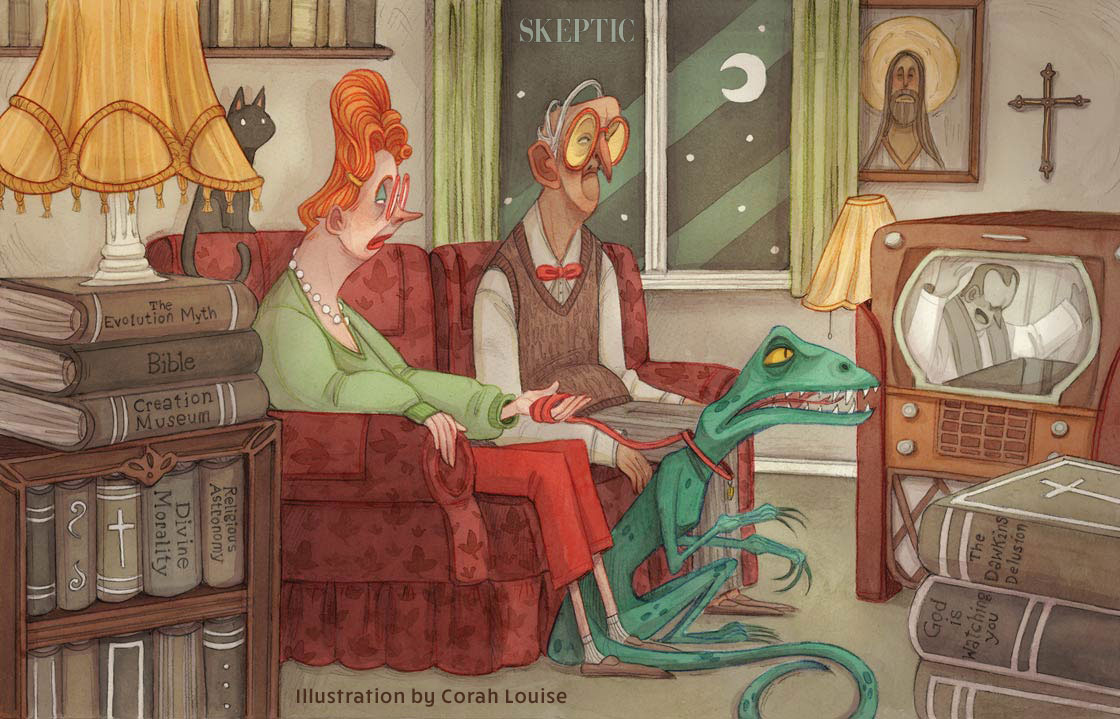
Science and religion present two paradoxes in the United States. On the one hand, the U.S. is the undisputed world leader in science. Yet, the U.S. is also the wealthy industrialized country with the most widespread skepticism about science, most notably regarding climate change, vaccines, and evolution. How can those two seemingly incompatible facts be reconciled? This article solves this paradox.
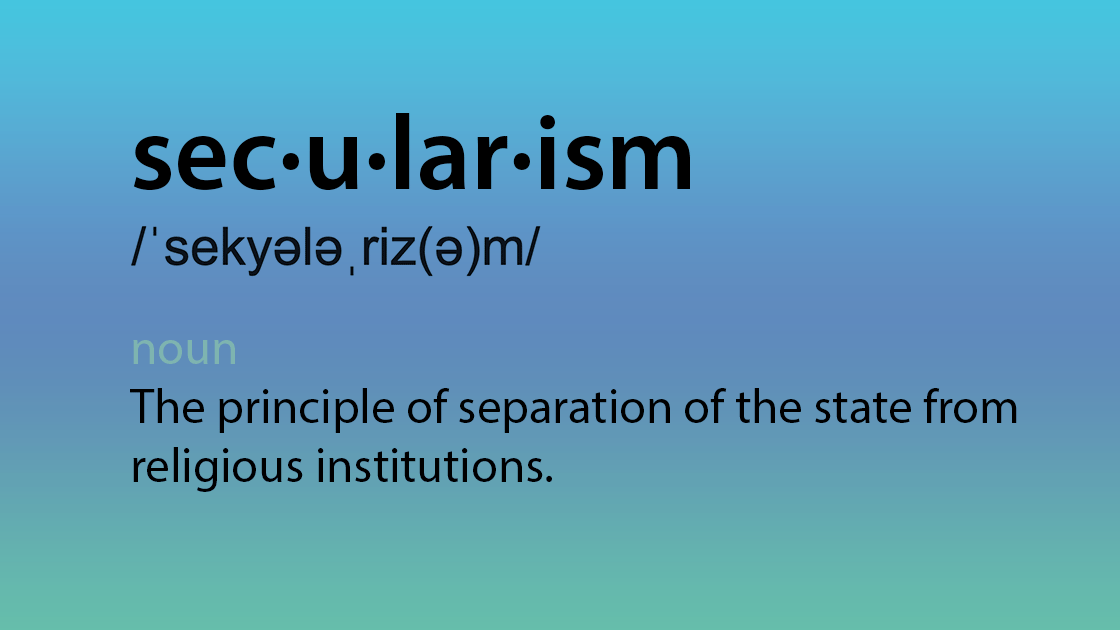
That the world in general and the United States in particular are becoming ever more secularized is no longer in dispute. The data are clear. The rise of the nones (no religious affiliation) is real. The hard question to answer is why. In this deep analysis of the many causal factors at work readers will learn about the long term trends that are likely to continue.
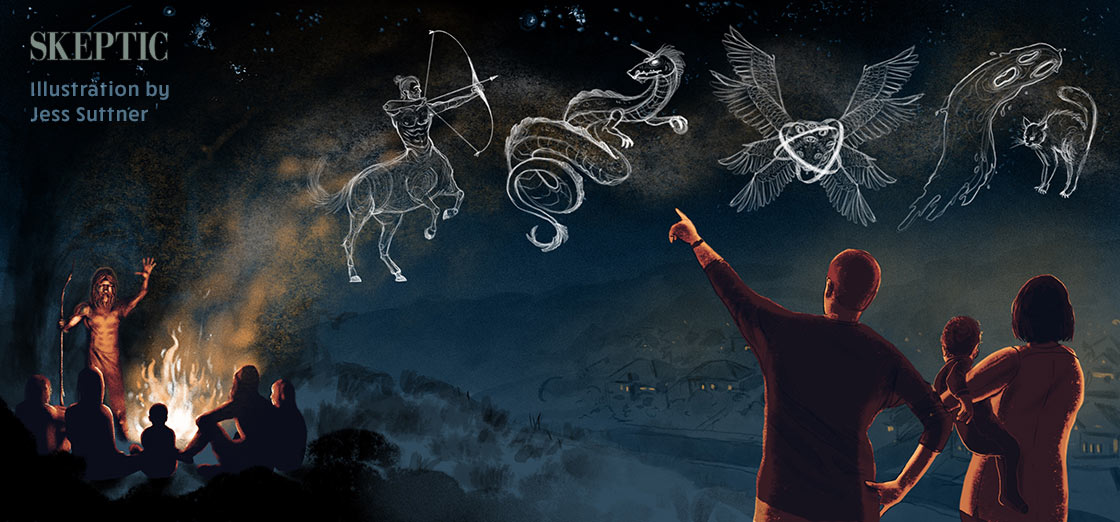
Long before science came of age in the Scientific Revolution of the 16th and 17th centuries, religion had been struggling to make sense of the world for millennia. Sometimes they got it right, but mostly they had no idea how the world works and had no systematic method to determine as much. This article explores the relationship between science and religion in terms of what was known back then and what is known now.
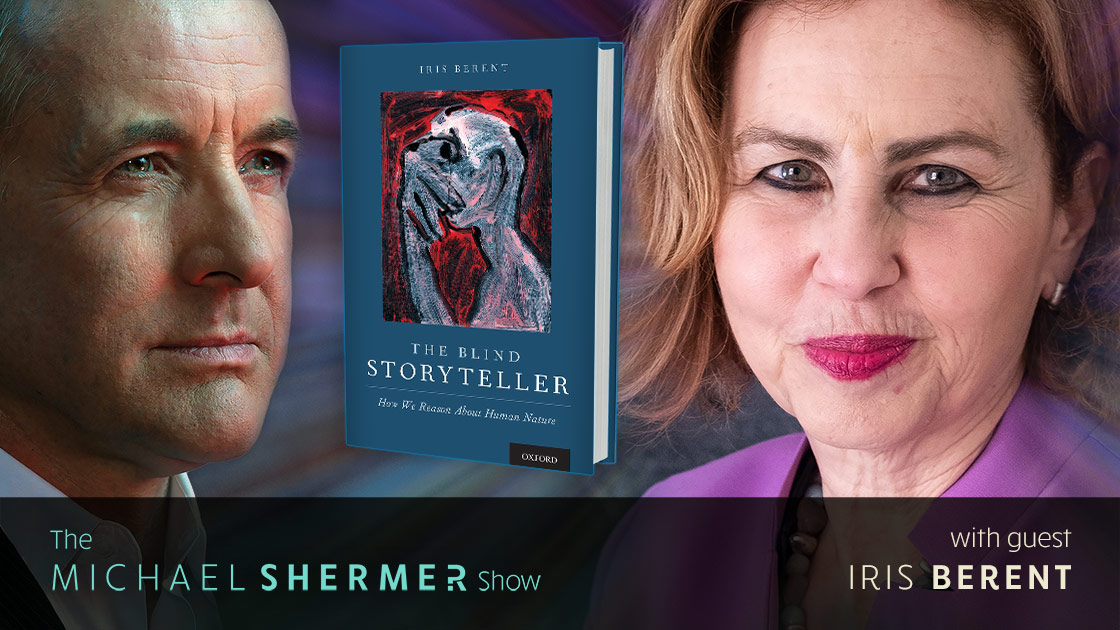
Shermer and Berent discuss: nature/nurture genes/environment biology/culture • language and innate knowledge • what babies are born knowing • how people reason about human nature • dualism • essentialism • theory of mind • the nature of the self • innate beliefs in the soul and afterlife • free will and determinism • how people think about mental illness and disorders • how one’s theory of human nature effects one’s attitudes about nearly everything.
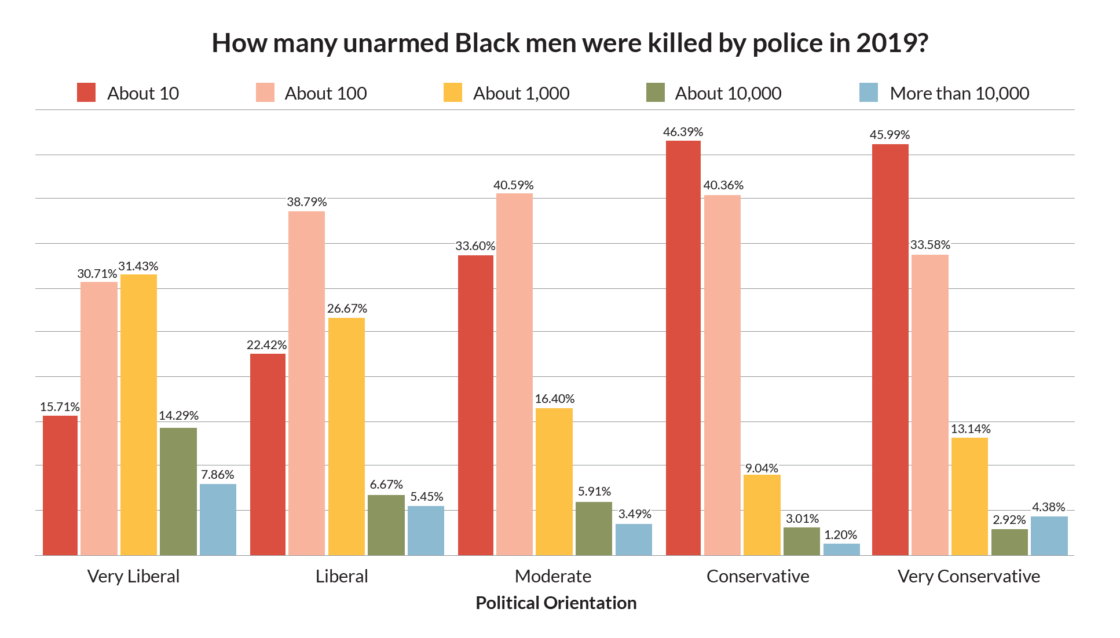
In his usual data-driven style of analysis, statistician and sociologist Kevin McCaffree, who also runs the Skeptic Research Center, presents the SRC finding about policing and race in America, and how political beliefs and orientation skews our perceptions of what is actually happening on the streets of the United States.
NEXT →




























